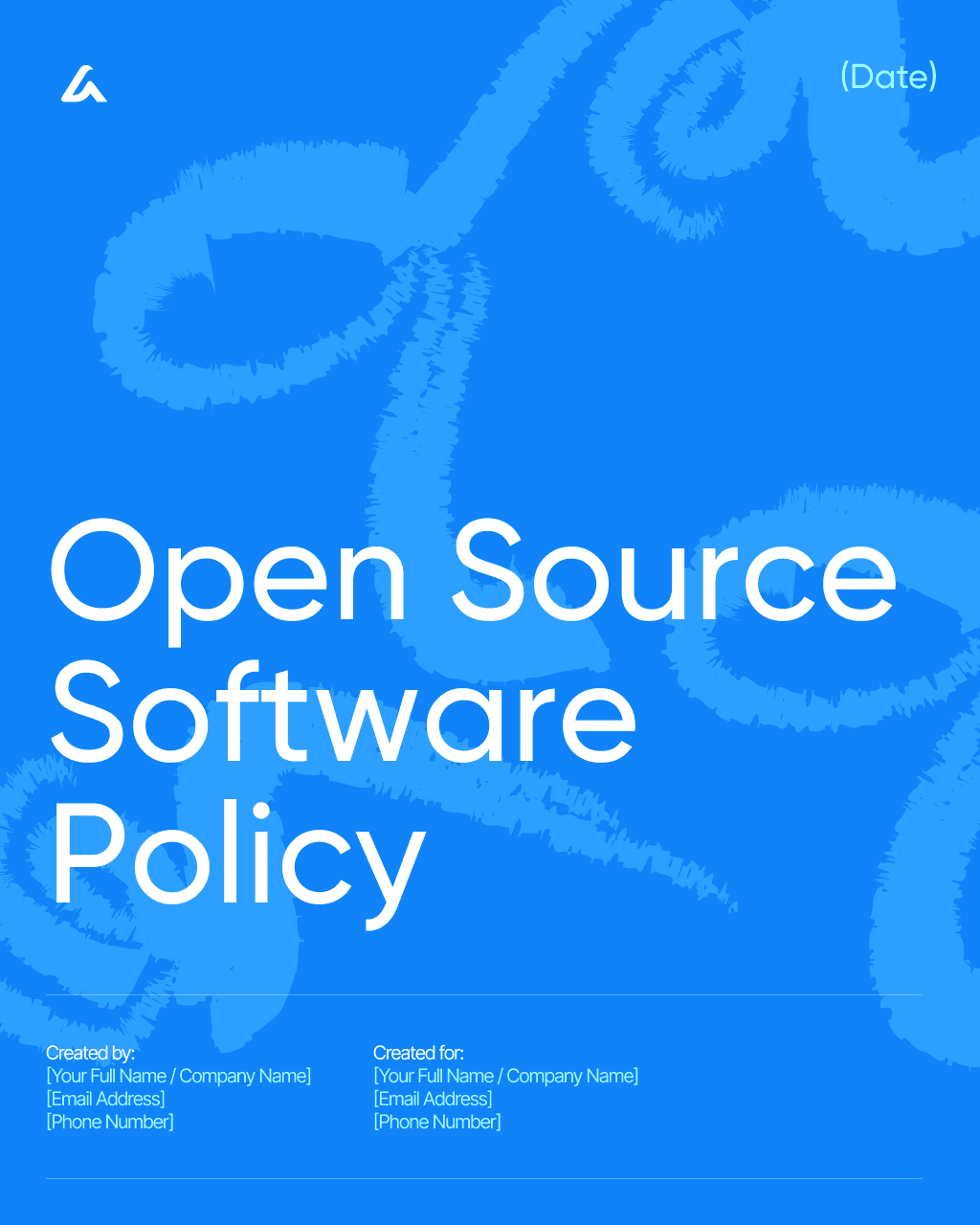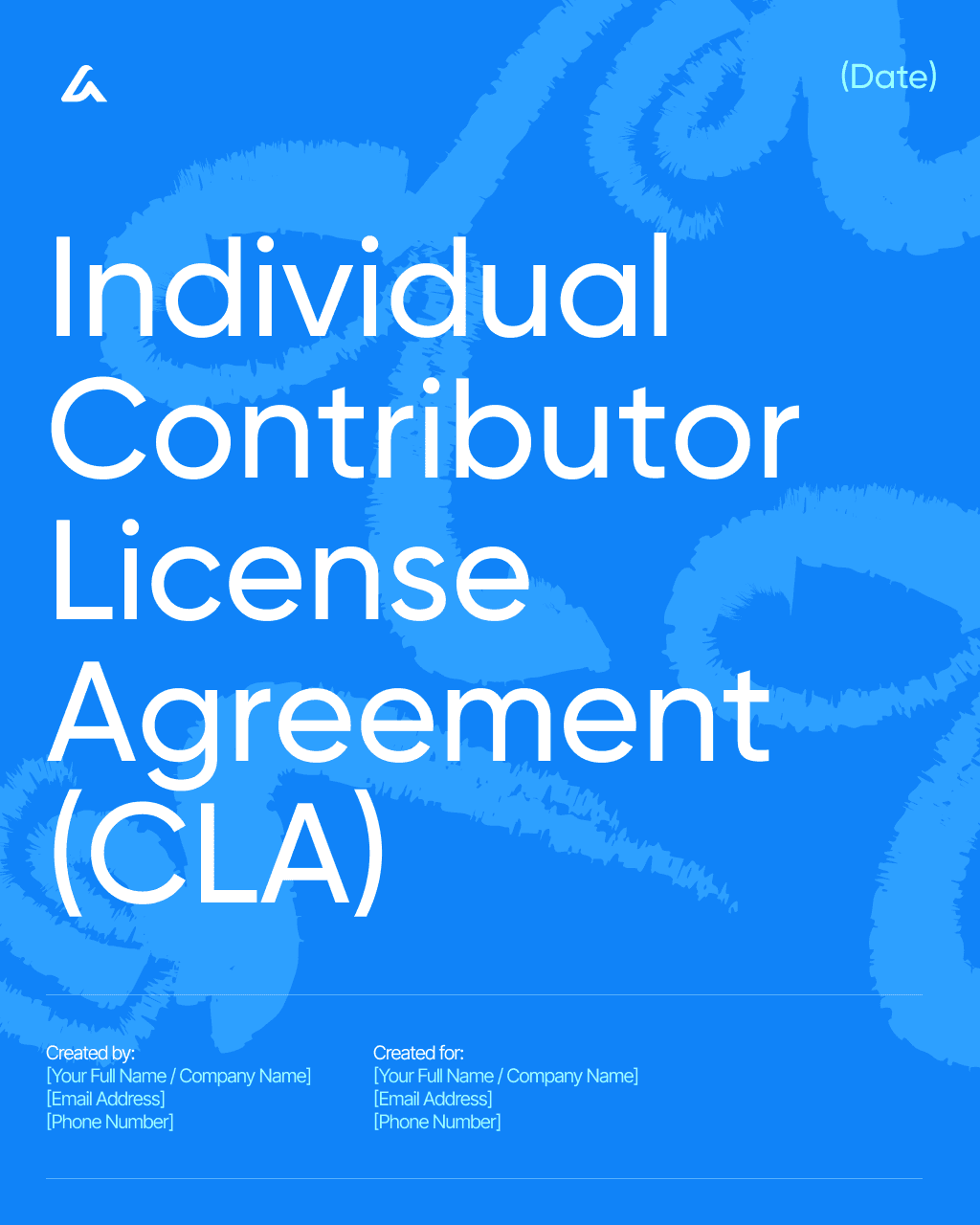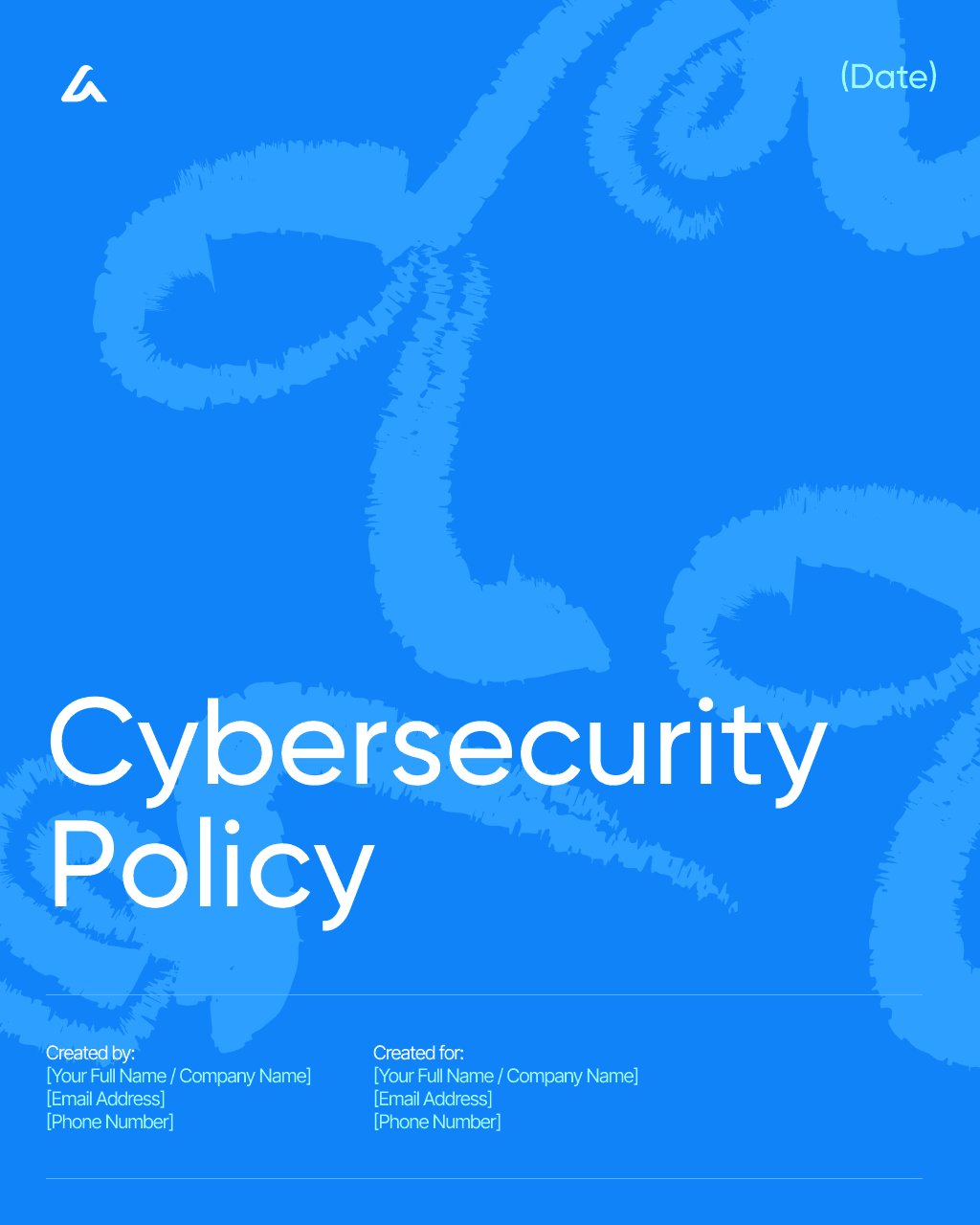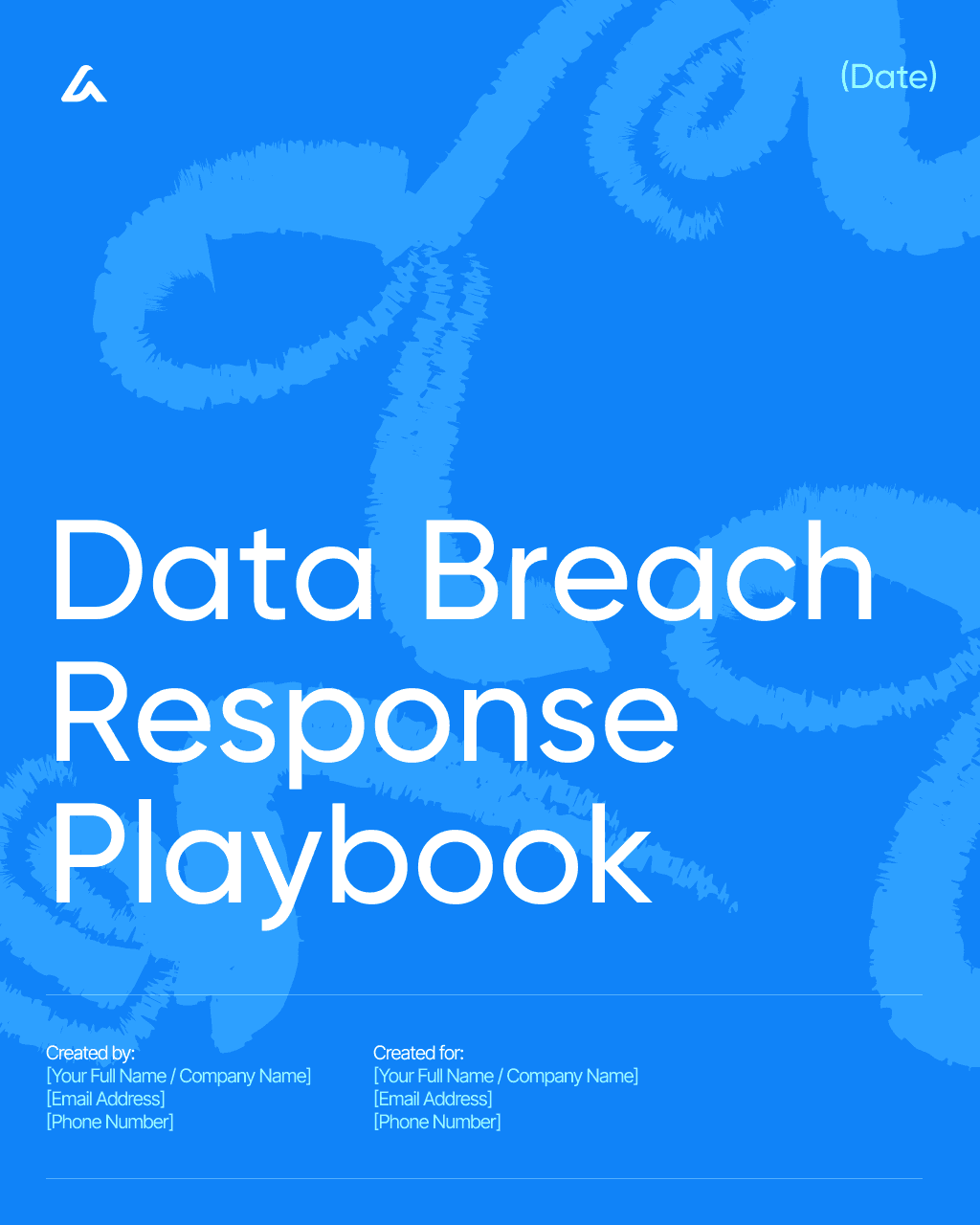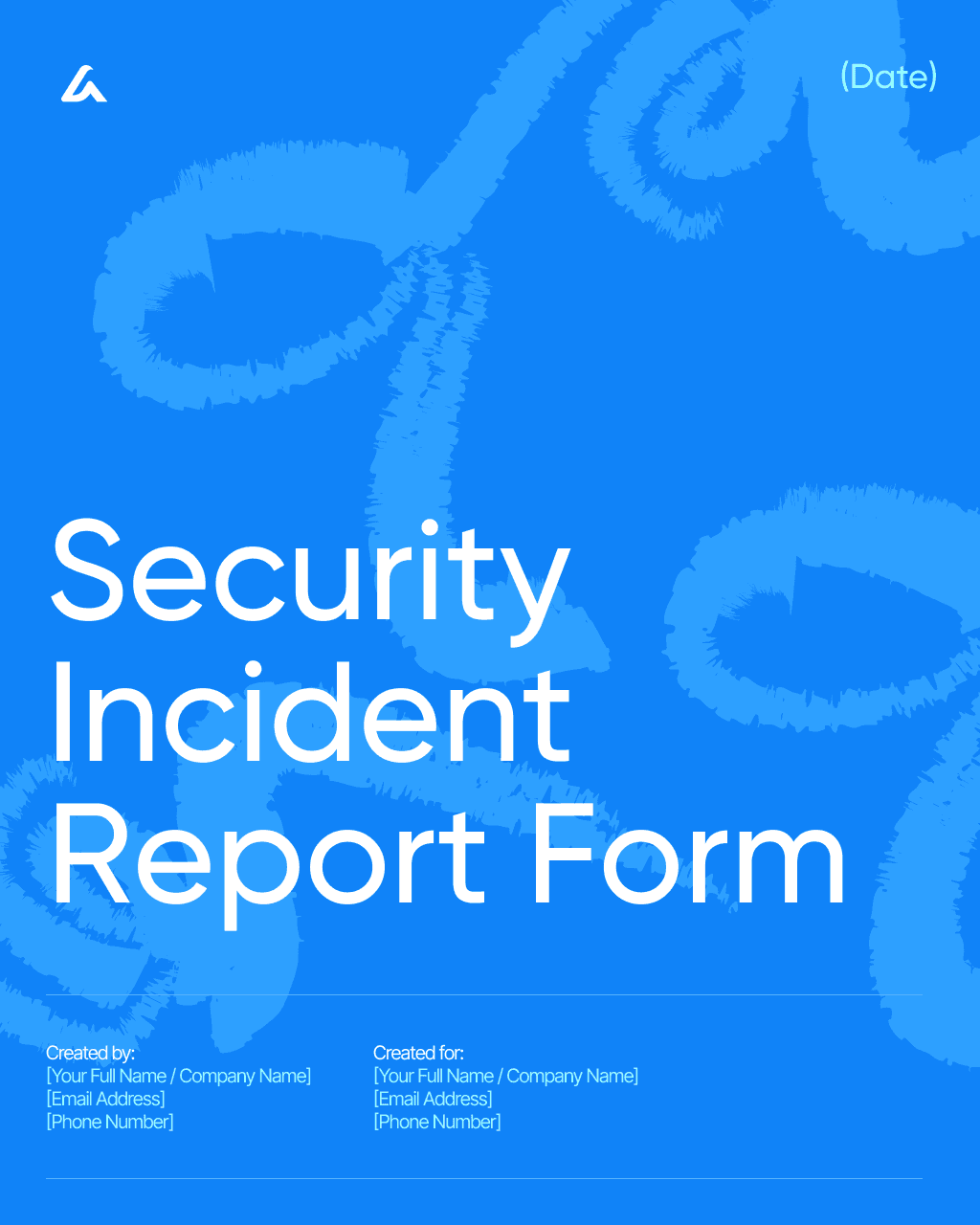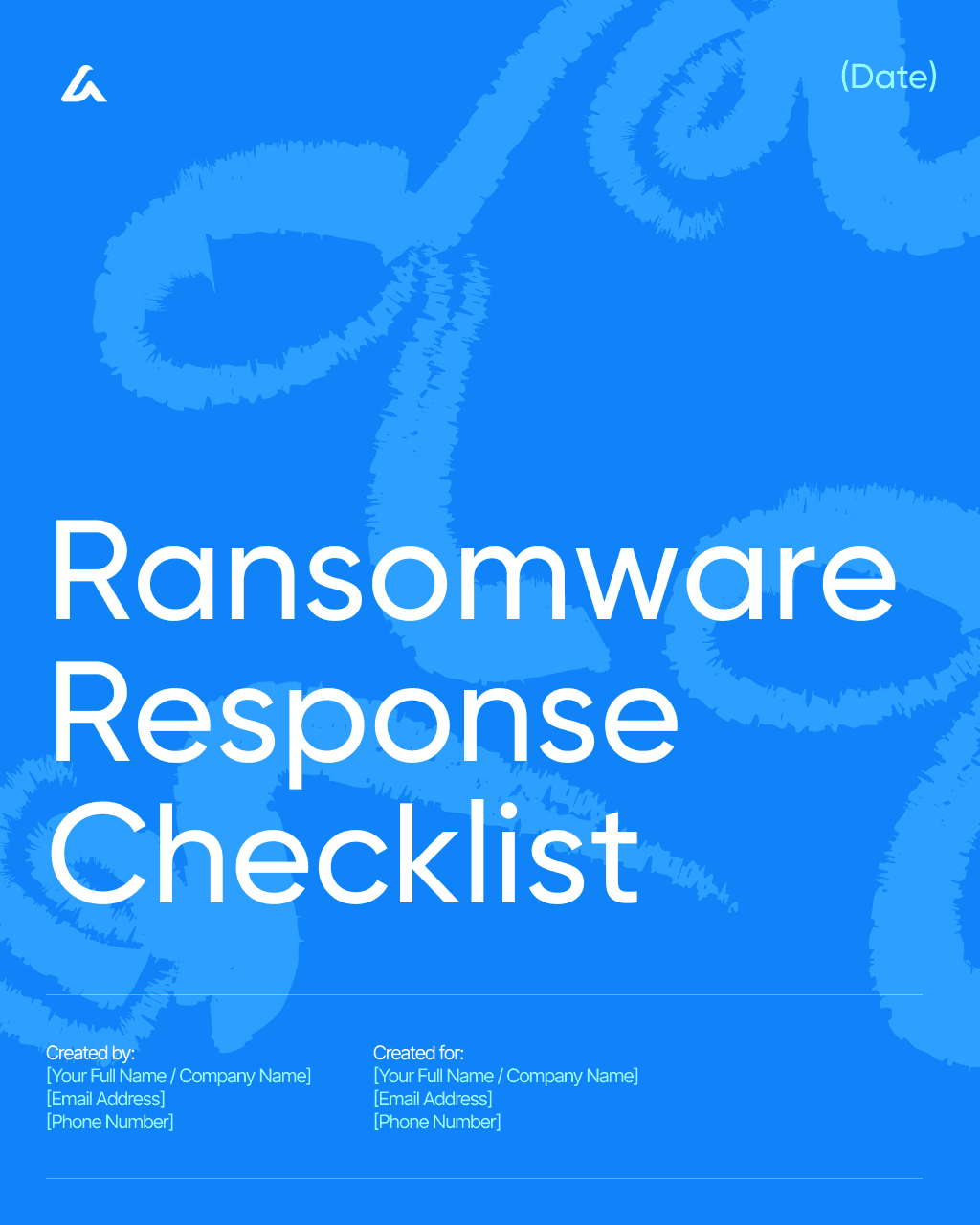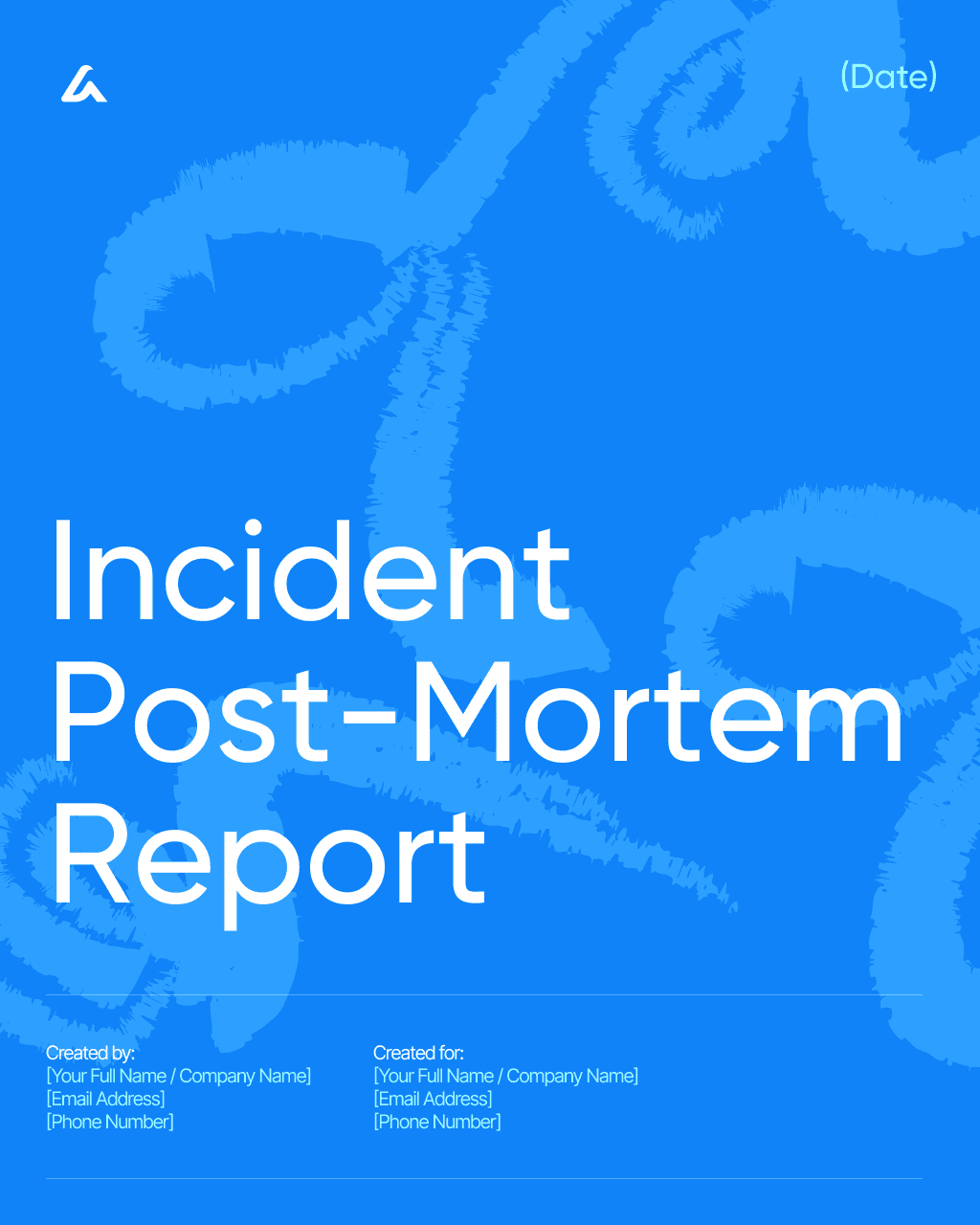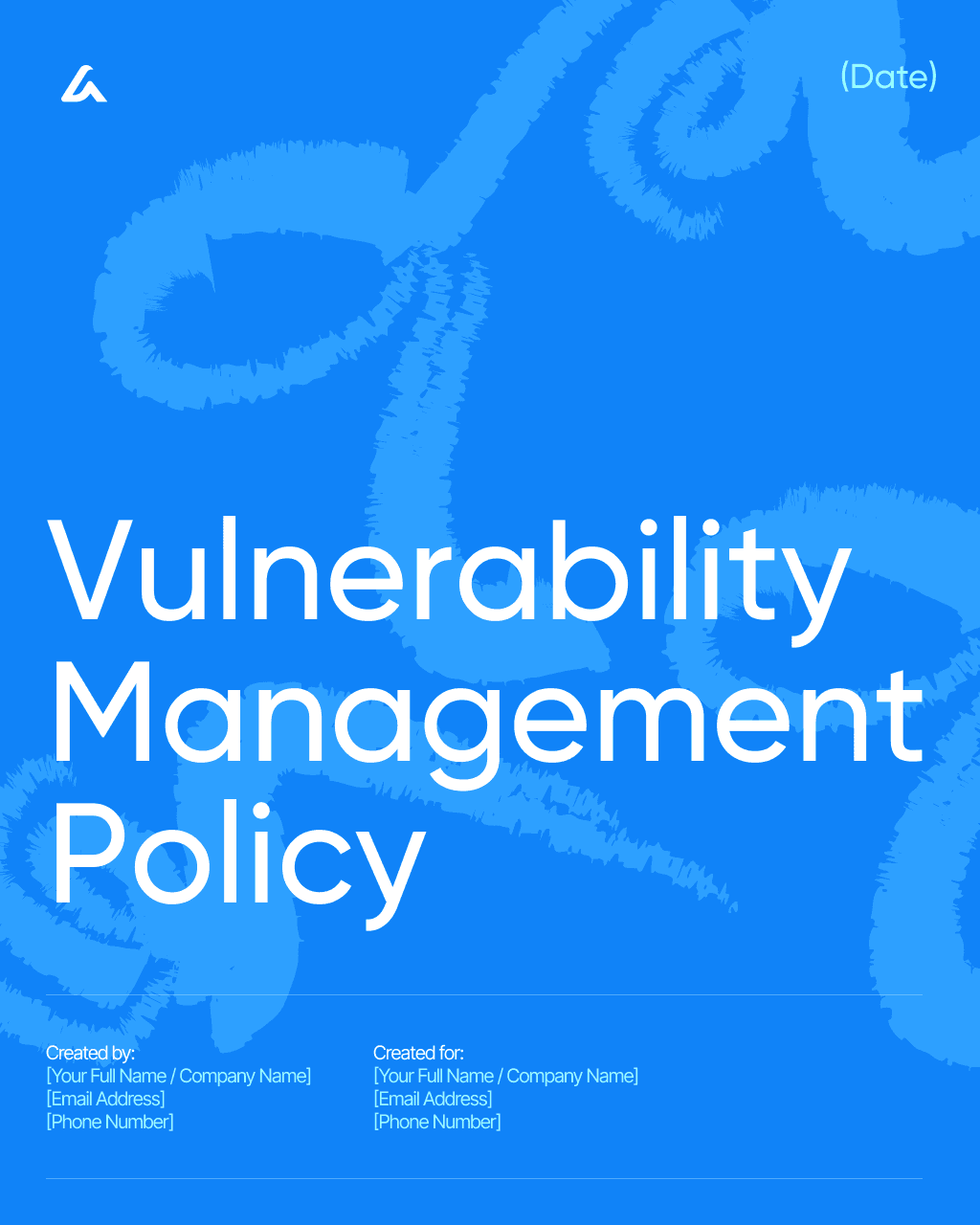Free template
Bug Bounty Policy Template: Scope, Rules, Rewards & Disclosure Terms
Set clear rules for reporting and rewarding security vulnerabilities with this Bug Bounty Policy Template.
Downloaded 3420 times
Bug Bounty Policy Template: Scope, Rules, Rewards & Disclosure Terms
Download template
Bug Bounty Policy Template
This Bug Bounty Policy (“Policy”) is adopted by [Company Name] and applies to all external security researchers and participants engaging with the Company’s systems and services.
1. Purpose
The purpose of this Policy is to encourage responsible vulnerability discovery and reporting to enhance the Company’s cybersecurity posture while protecting researchers and users.
2. Scope
The following assets are in scope for this program:
[Websites, APIs, mobile apps, etc.]
[Specific domains or IP ranges]
The following assets are out of scope:
Third-party systems not owned by the Company.
Social engineering or physical intrusion attempts.
3. Rules of Engagement
Participants must:
Conduct testing only on systems identified as in-scope.
Avoid privacy violations and data destruction.
Stop testing immediately if sensitive data is encountered.
Provide detailed reports with steps to reproduce the issue.
4. Submission Process
All reports must be submitted via [Submission Portal or Email].
Reports should include:
A clear description of the vulnerability.
Impact assessment and potential exploitation scenarios.
Relevant screenshots, logs, or proof-of-concept code.
5. Reward Structure
Rewards are based on severity and impact, categorized as:
Critical: $[Amount]
High: $[Amount]
Medium: $[Amount]
Low: Recognition only
Final reward determination rests with the Company’s security team.
6. Safe Harbor
Participants acting in good faith and within the scope of this Policy will not face legal action from the Company for their testing activities.
7. Disclosure Guidelines
Participants may not disclose vulnerabilities publicly without written permission.
The Company will acknowledge receipt of valid reports within [X business days] and provide resolution updates.
8. Confidentiality
All information shared by participants and the Company must be kept strictly confidential until the vulnerability is resolved.
9. Violations and Disqualification
The Company reserves the right to disqualify participants for:
Engaging in malicious activity.
Submitting fraudulent or duplicate reports.
Violating legal or ethical guidelines.
10. Governing Law
This Policy shall be governed by and construed in accordance with the laws of [State/Country].
11. Updates to the Policy
The Company may revise this Policy at any time. Changes will be communicated through the program portal or official website.
Flash deal
Flash deal
Today
Today
No time to fill it up? Generate your custom agreement with AI Lawyer in seconds
What’s Included
Legal Research
Legal Research
Legal Research
Contract Drafting
Contract Drafting
Contract Drafting
Document Review
Document Review
Document Review
Risk Analytics
Risk Analytics
Risk Analytics
Citation Verification
Citation Verification
Citation Verification
Easy-to-understand jargon
Easy-to-understand jargon
Easy-to-understand jargon
Details
Learn more about
Bug Bounty Policy Template: Scope, Rules, Rewards & Disclosure Terms
Click below for detailed info on the template.
For quick answers, scroll below to see the FAQ.
Click below for detailed info on the template.
For quick answers, scroll below to see the FAQ.
BUG BOUNTY POLICY FAQ
What is a Bug Bounty Policy?
A Bug Bounty Policy is a set of rules and procedures that outlines how security researchers can report vulnerabilities in a company’s systems or software in exchange for rewards, recognition, or both.
Why is a Bug Bounty Policy important?
It helps organizations identify and fix vulnerabilities before they are exploited by malicious actors. It also builds trust with the security community by offering a safe, structured process for reporting bugs.
When should you implement a Bug Bounty Policy?
You should implement this policy before launching public-facing applications, APIs, or platforms, especially if sensitive data is involved.
What should a Bug Bounty Policy include?
It should clearly define the scope of systems covered, submission guidelines, legal safe harbor provisions, reward structures, and disclosure rules.
How does it differ from a Vulnerability Disclosure Policy?
While both outline how vulnerabilities should be reported, a Bug Bounty Policy includes monetary or non-monetary incentives, whereas a Vulnerability Disclosure Policy focuses only on responsible reporting without rewards.
Need a customized Bug Bounty Policy?
Use our AI-powered builder to generate a tailored policy in minutes — compliant, secure, and ready to deploy.
Similar templates
Other templates from
Policy and Compliance Documents
Money back guarantee
Free trial
Cancel anytime
AI Lawyer protects
your rights and wallet
Money back guarantee
Free trial
Cancel anytime
AI Lawyer protects
your rights and wallet
Money back guarantee
Free trial
Cancel anytime
AI Lawyer protects
your rights and wallet
Money back guarantee
Free trial
Cancel anytime














































